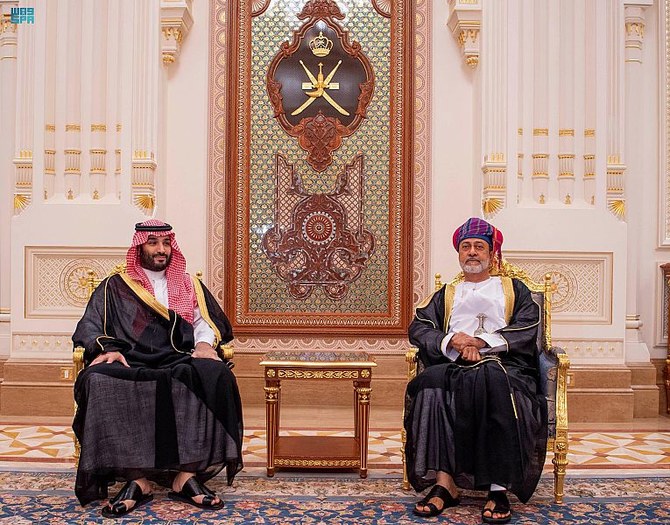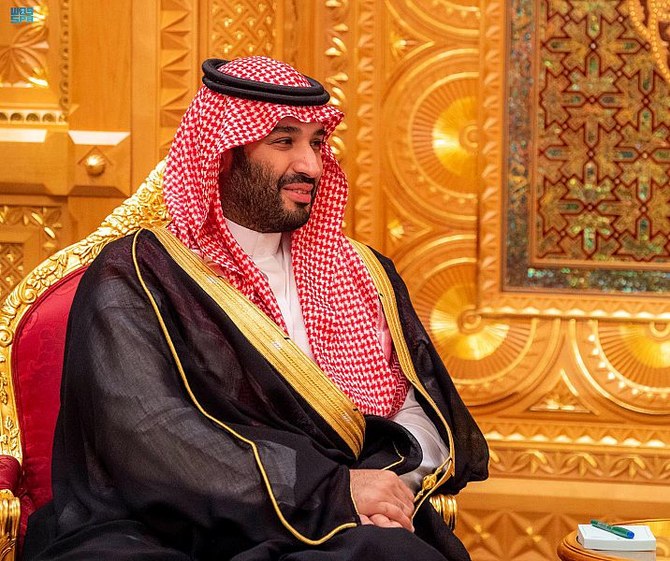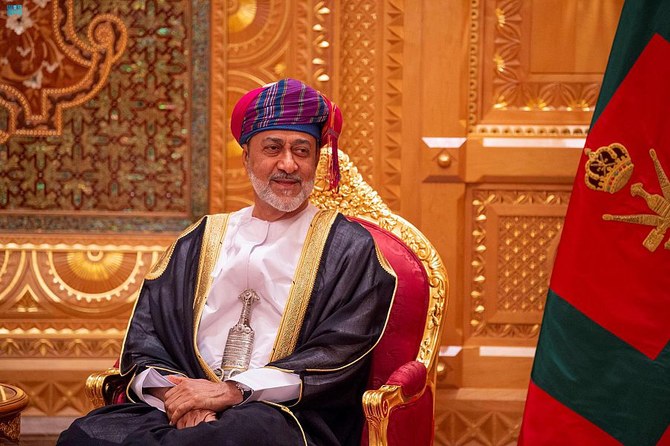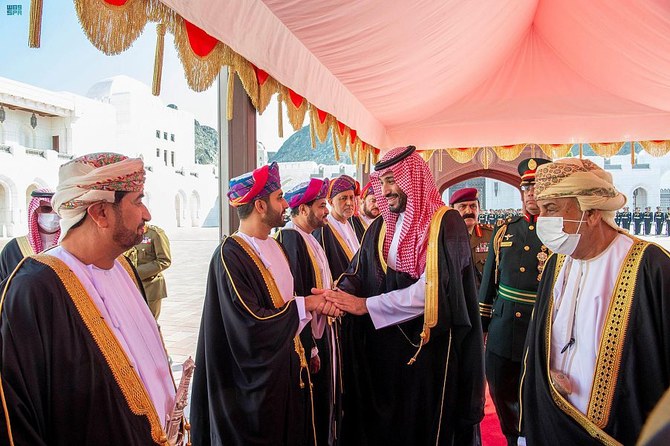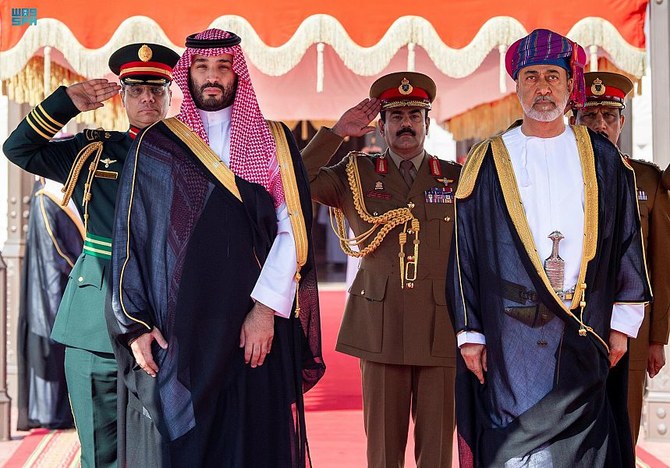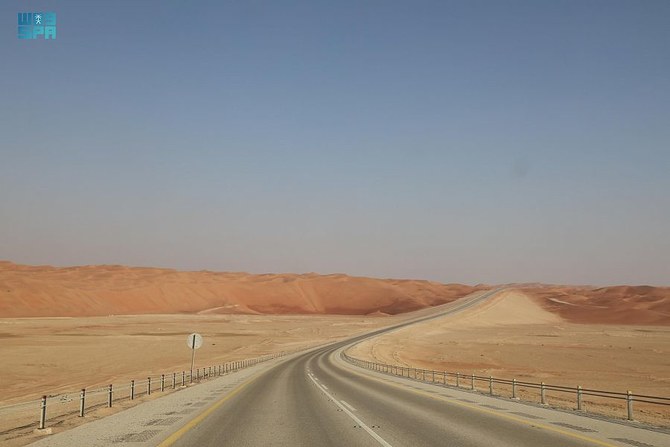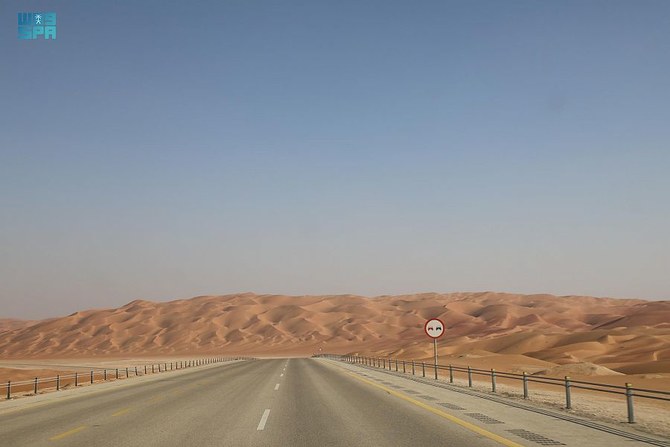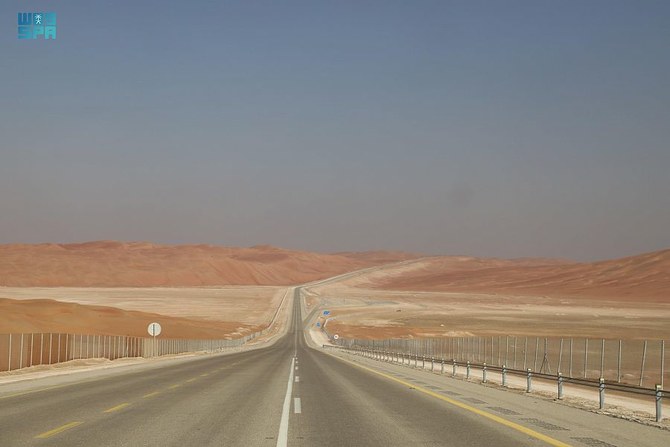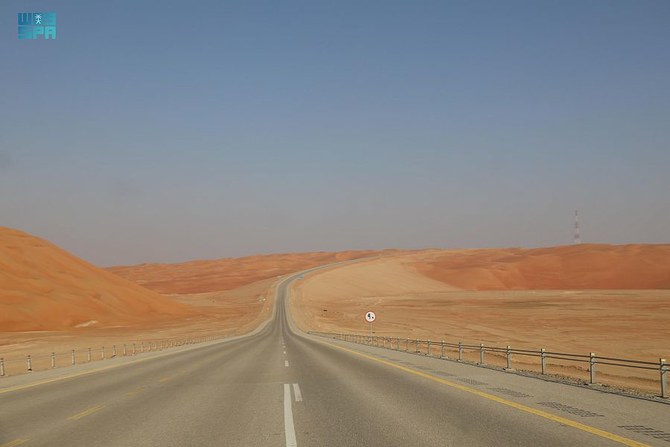RIYADH: Saudi Arabia and Oman announced on Tuesday the opening of the first land crossing between the two Gulf neighbors.
“The 725 kilometer Saudi-Omani road...will contribute to the smooth movement of citizens of the two countries and the integration of supply chains,” a joint statement released following an official visit by Saudi Crown Prince Mohammed bin Salman said.
The road runs from Al-Batha road intersection near the capital, Riyadh, to the Empty Quarter crossing on the Saudi-Omani border, costing over SR1.9 billion ($506 million).
The project to link the two countries, implemented by the Ministry of Transport and Logistics, is considered an engineering marvel given the difficult terrain and harsh climate in the Empty Quarter. It is also considered one of the ministry’s most important projects due to the role it plays in promoting trade exchange between the two countries, and facilitating the movement of pilgrims and tourists.

The opening of the road also completes the Kingdom’s direct links with all the countries of the Gulf Cooperation Council, and is expected to contribute to increasing the volume of trade exchange between the two countries, which exceeded SR10 billion last year.
Meanwhile, Oman’s Sultan Haitham bin Tariq and Prince Mohammed held talks in Muscat, where they reviewed prospects for joint cooperation and ways of developing them in various fields. They praised the cooperation and coordination achieved in the political, economic, military and security fields so far.
The two sides also praised the efforts of the OPEC+ countries, led by the Kingdom and with Oman’s participation, which led to the stability and balance of oil markets. They also stressed the importance of continuing this cooperation and called on member countries to adhere to the OPEC+ agreement.

Saudi Arabia and Oman agreed to cooperate in the field of energy and climate change and to work jointly within the framework of the Middle East Green Initiative regionally and globally.
“The two sides agreed to increase the facilities that contribute to the smooth flow of intra-regional trade and enhance cooperation in the field of food security,” the statement said.
During the visit, memoranda of understanding were signed in the fields of tourism, radio and television, news exchange, and audio-visual and print media. Several leading Saudi and Omani companies also signed a number of agreements.
On regional and international issues, the two sides agreed to work to coordinate their positions in a manner that serves their interests and enhances security and stability, and affirmed their support for all efforts aimed at achieving peace in the Middle East.

They called for the need to reach a comprehensive settlement to the Palestinian-Israeli conflict that guarantees the right of the Palestinian people to establish their independent state, with East Jerusalem as its capital.
On Yemen, the two sides agreed to continue their efforts to find a comprehensive political solution to the crisis and end the human suffering of the Yemeni people.
The Kingdom and the sultanate also welcomed the success of the recent elections in Iraq, and hoped the new Iraqi government will continue to work for the security, stability and development of the country.
The two sides also welcomed the agreements reached by the parties to the transitional phase in Sudan, and affirmed their continued support for security and stability in the north African country, and prosperity for its people, the statement added.
They also called for the need to implement comprehensive reforms in Lebanon to ensure it overcomes its crises and does not become a launching pad for any terrorist or criminal acts that destabilize regional security and stability.

Saudi Arabia and Oman also called for the need to reach political solutions to the Syrian and Libyan crises, and to support relief efforts and security and stability in Afghanistan so it does not become a safe haven for terrorists and extremists.
Oman praised the Kingdom for calling an extraordinary meeting of the Organization of Islamic Cooperation countries to discuss the situation in Afghanistan, which will be held in Pakistan on Dec. 19.
They also stressed the need to “cooperate and seriously and effectively deal with Iran’s nuclear and missile program with all its components and repercussions, in a way that contributes to achieving regional and international security and stability.” They emphasized the principles of good neighborliness, respect for UN resolutions, and sparing the region from all destabilizing activities.

Sultan Haitham awarded the crown prince the Oman Civil Order of the first degree – one of the highest Omani honors – during their official talks at Al-Alam Palace in Muscat. The distinction is awarded to kings, heads of state, crown princes and heads of government whose countries have distinguished relations with Oman.
The crown prince sent a cable to Sultan Haitham following the visit, thanking him for the warm reception and hospitality he and his accompanying delegation received, Saudi Press Agency reported.
“The discussions we had with Your Majesty confirmed the strength of the brotherly relations between our two countries, and the common desire to deepen cooperation between them in all fields,” he said, “which aims to achieve the interests of the two countries and enhance regional security and stability.”
The crown prince’s two-day visit to Oman came following directives from King Salman to strengthen the close relations between the two countries, as part of a Gulf tour that also includes visits to the UAE, Qatar, Bahrain and Kuwait.


